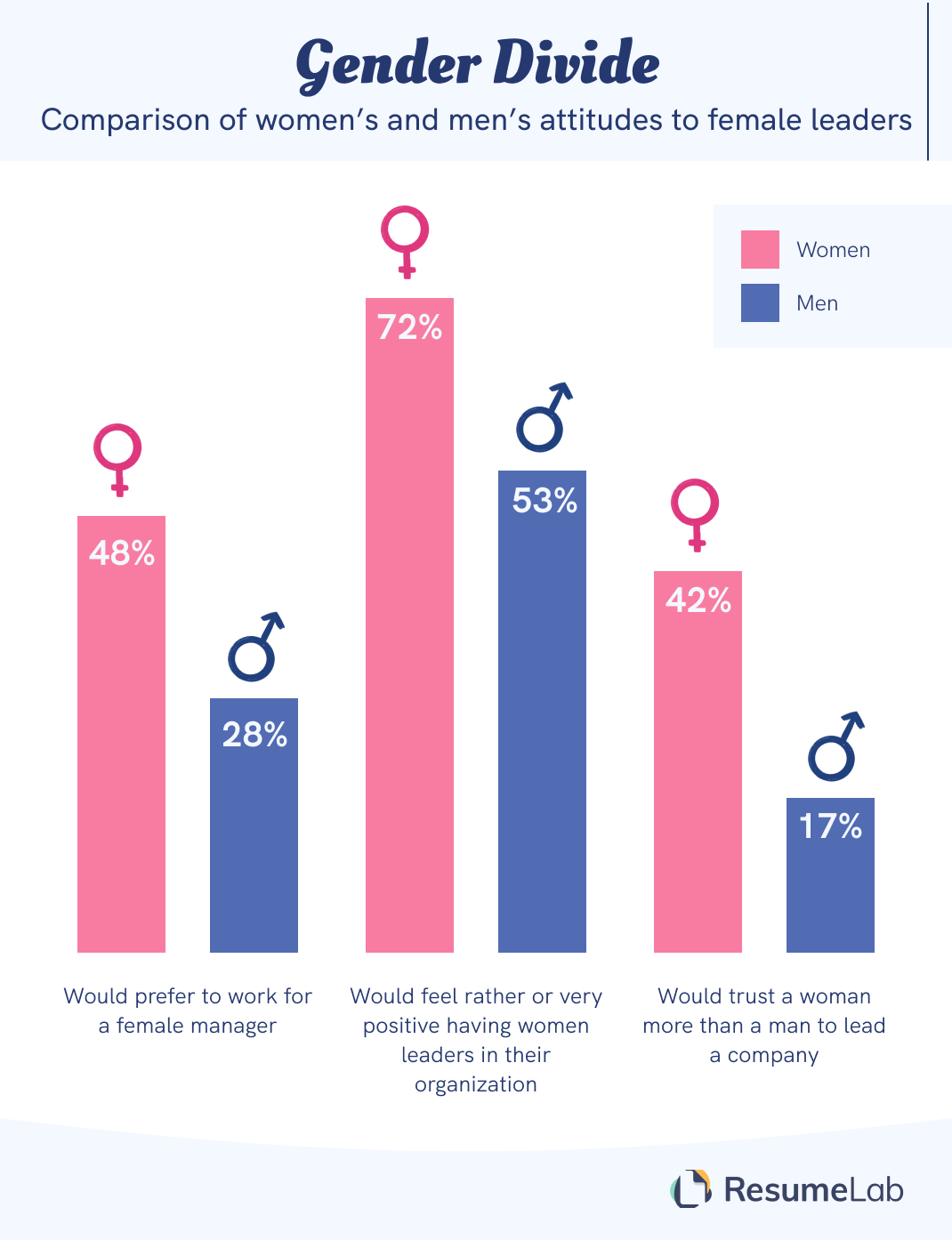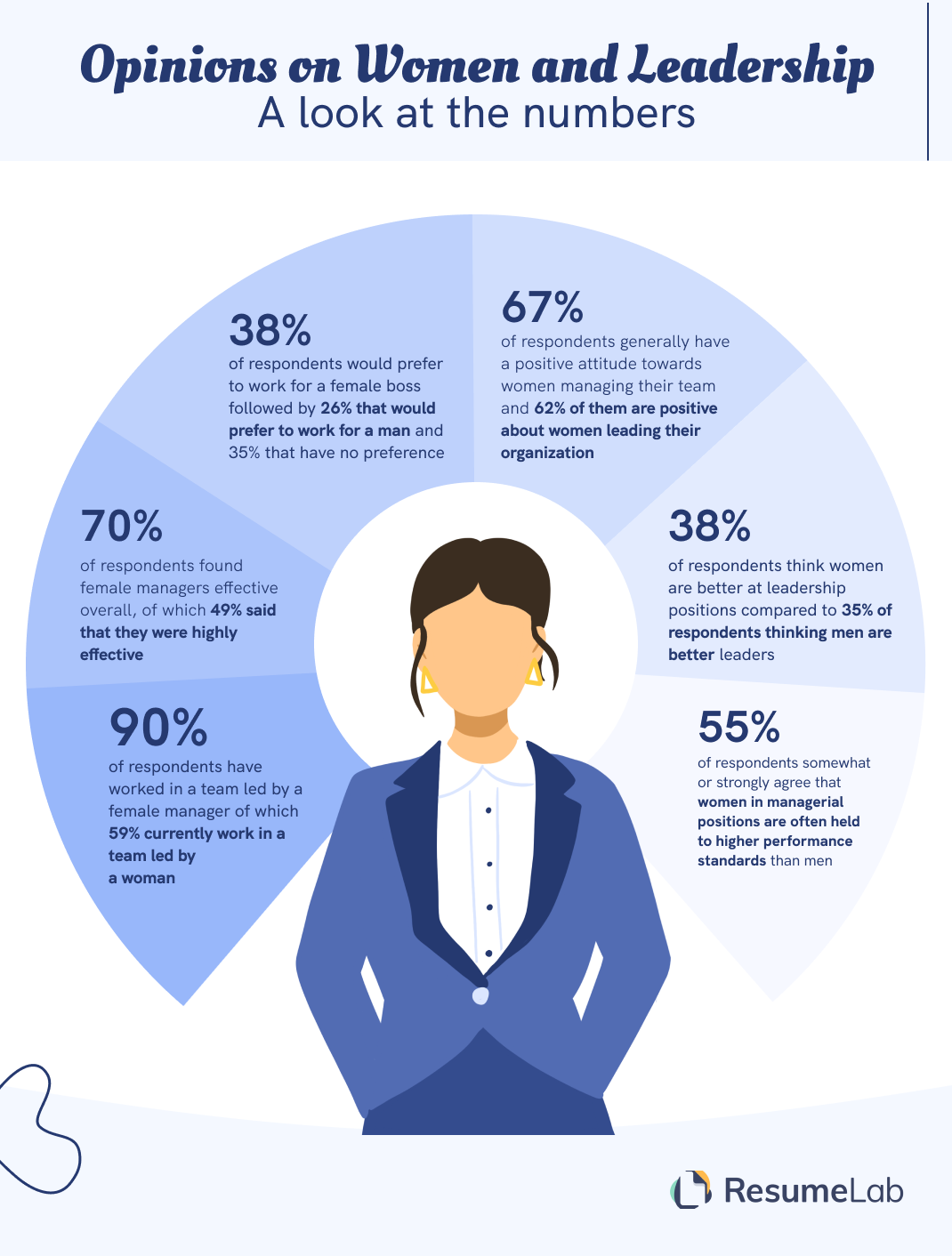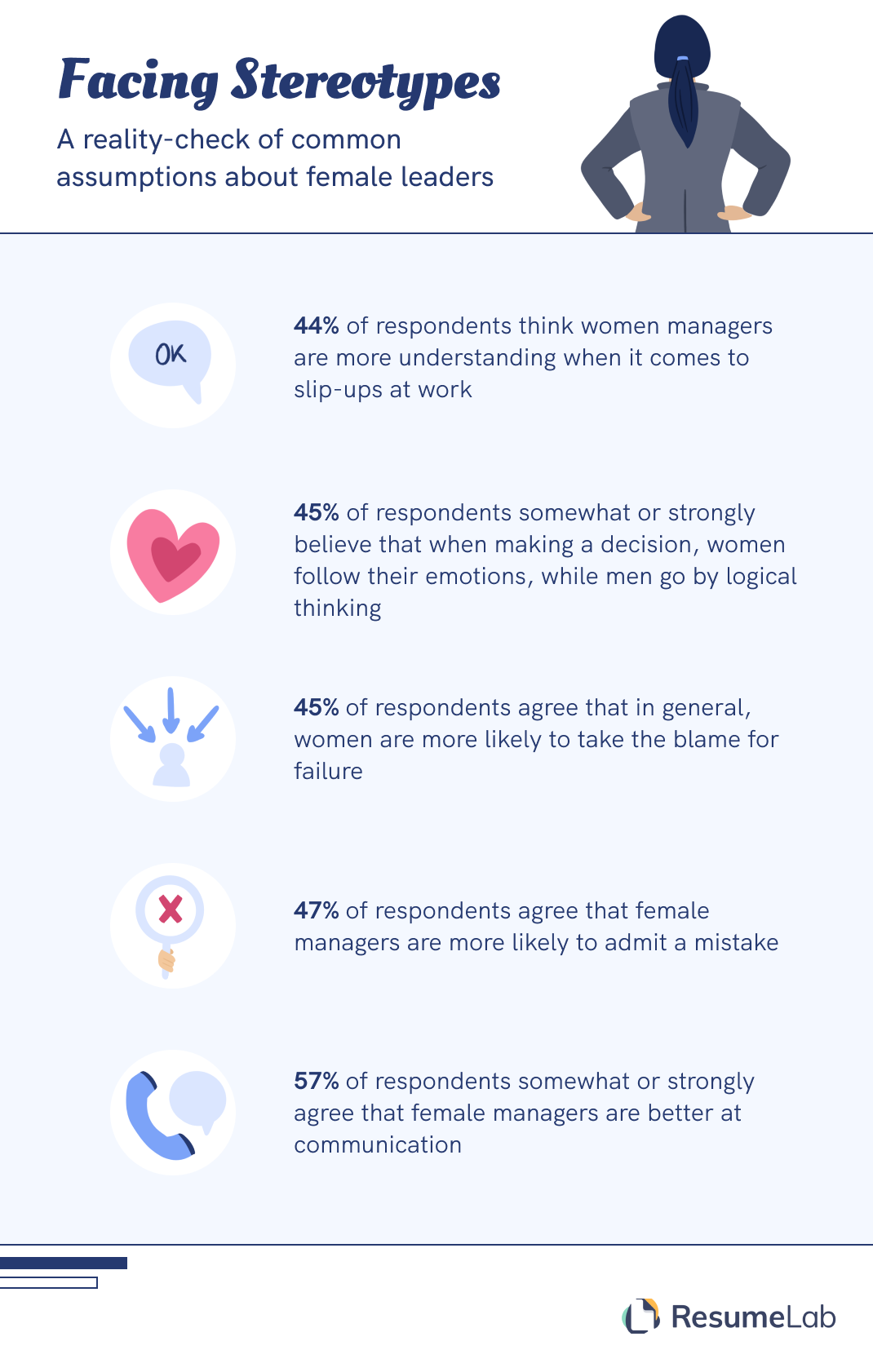Human Resources Online is on Telegram! Follow us @humanresourcesonline or click here for all the latest weekly HR and manpower news from around the region.
share on
For one, women bosses were perceived to be more understanding when it came to slip-ups at work, and also better at overall communication.
"Would you rather work for a woman boss, or a male boss?"
We've all been asked this at some point in our working life and, as much as we try not to generalise, many of us may pick a side at least once (and then proceed to ramble on justifying why we say so). Most of the time, this is simply based on personal experience, which makes us associate a certain gender to either be ideal bosses, or not.
Ideally, this shouldn't be a point of conversation at all. The best bosses are those who communicate transparently, are empathetic and genuinely care for their team, and empower their staff to become better versions of themselves.
However, a recent study by ResumeLab has found that of 800 employees surveyed in the US, close to four in 10 (38%) would prefer to work for a woman boss, followed by 26% who would prefer to work for a man; while 35% had no preference.
Breaking down the data based on respondents' genders, the study revealed a stark difference:
Among woman respondents
- 48% would prefer to work for a female manager.
- 72% feel rather or very positive about having women leaders in their organisation.
- Another 42% would trust a woman more than a man to lead a company.
Among male respondents
- Just 28% of them would prefer to work for a female manager.
- Only 53% feel rather or very positive about having women leaders in their organisation.
- Less than one in five (17%) would trust a woman more than a man to lead a company.

Overall, 90% of respondents have worked in a team led by a woman manager, of which 59% currently work in a team led by a woman. At the same time, 70% of them found female managers effective overall, of which 49% said they were highly effective. As a result, 67% of respondents have a positive attitude towards women managing their team, while 62% have positive sentiments about women leading their organisation.
But why exactly do these employees want to work for a woman boss?
According to 44%, it's because they think women managers are more understanding when it comes to slip-ups at work. Women bosses were lauded for being better at communication, according to 57% of the responses. The survey shared a few direct quotes from these respondents:
- "I think female bosses are more willing to listen and take everyone's perspective into consideration. Men are more matter of fact."
- "Female. Communication is better, expectations are clearer, and collaboration on problem-solving is more frequent. Work feels more like a team effort than an individual burden."
- "I think overall, women managers are better communicators, but men are more likely to hold individuals accountable."
On the other side, respondents also shared why they might prefer a male boss, highlighted in some of their direct quotes:
- "[I prefer] a male boss because they are less emotional."
- "Women can be more sympathetic, which can lead to their employees walking all over them. Men rarely have that problem."
- "I've never had a female boss before, but I work in the manufacturing industry. But as a woman, I know that we can be emotional and hold grudges. I wouldn't want to have to deal with all that drama at a job."
[Ed's note: Like you, we're cringing at the comments on both female and male bosses. But we believe it's important to share the survey data with our readers in order to have open conversations about issues that all industries, and leaders, need to address.]

That said, women in leadership "remain burdened by the weight of expectations and stereotypes," the study noted.
For instance, 45% of respondents 'somewhat' or 'strongly' believed that women follow their emotions while men go by logical thinking when making a decision. Similarly, the same percentage of respondents noted that in general, women were more likely to take the blame for a failure.
Apart from that, women were also stereotyped to be more suited for certain industries, with healthcare (65%), education/library (61%), and HR industries (53%) in the top three.
Other industries that were generalised as most suitable for women include:
- Finance/real estate/insurance: 51%
- Office administration: 51%
Personal care/social services: 51% - Arts/design/fashion: 51%
Other interesting data points highlighted in the study are shared in the data points below:

Lead image and infographics / ResumeLab
share on

![[Infographic] Why 38% of employees surveyed would prefer to work for a woman boss](https://humanresourcesonline-assets.b-cdn.net/images/hr-sg/content-images/priya-may-2021-women-leaders-resume-lab.jpg)
